As the opening scene unfolds, a butterfly trapped in a jar portends an atmosphere of unease within the lavish mansion. We follow the gaze of the wealthy businessman Roongroj as he looks out across his verdant grounds from a high balcony, lost in contemplation. Suddenly, an entrancing flock of butterflies swarms around him without warning. Overcome, Roongroj loses his balance and tumbles to the ground below, leaving his fate—and that of his business empire—in question.
Thus begins an engrossing tale of mystery, betrayal, and greed that will keep audiences guessing until the dramatic conclusion. As Roongroj’s household gathers to lay him to rest, tensions emerge between his sons, who vie to inherit control of his multi-million-dollar diamond company. But a new marriage made shortly before Roongroj’s death further clouds the situation, bringing a lowly servant into possession of a stake in the family business.
As secrets from the past unravel and long-held grudges surface, each family member becomes a suspect in Roongroj’s still unexplained demise. In this compelling Thai drama, no one is above suspicion as the story delves deeper into motivation and deception. Fans of thrillers such as Succession will find much to admire in this absorbing series, an artfully crafted tale of intrigue within the cloistered world of wealth and privilege.
Family Feuds
At the center of this simmering drama is Kaimook, a woman of humble origins whose life is thrown into turmoil with Roongroj’s death. As a servant, she spent years caring for the household with quiet diligence. Yet her unexpected marriage to the wealthy patriarch in his final days cast her as an outsider in glittering society circles.
Kaimook, now a widow, faces resentment and suspicion from all sides. Though loyal to her late husband’s memory, navigating these treacherous waters will test even her resolve. As suspicions grow around Roongroj’s demise, Kaimook remains determined to uncover the truth, whatever enemies she may make along the way.
Two such opponents are Roongroj’s sons, both vying to control their father’s empire. Phupat, the cautious elder sibling, sees Kaimook as a threat to his birthright. A shrewd family man, he’ll stop at nothing to safeguard his lineage’s future. Meanwhile, the arrogance and cruelty of Mavin’s younger brother know no bounds. Used to taking what he wants, this serpent in their garden views Kaimook as mere prey in his games of power.
Each son brings his own alliances to this bitter struggle. Phupat finds steadfast support from his wife, Patcha, whose savvy mind aids his machinations. At Mavin’s side, the calculating Araya proves a capable partner in crime, though cracks may emerge in their union given his volatile nature.
As tensions reach a boiling point, one question looms over the teeming household: who desired Roongroj’s fall from grace the most in his final days? The answer lies buried among these complex characters and their shifting motives. Only the boldest will emerge from the gathering storm unscathed.
Family Ties Unraveled
From its tense opening, “Master of the House” slowly pulls back the veil on the fracturing dynamics of Thailand’s wealthiest clan. Episode one sees Roongroj’s shocking marriage turn celebration into chaos, with sons Phupat and Mavin reacting coldly. Doubts surface around their father’s subsequent death, declared an accident.
Episode two delves into each brother’s scheming to secure control. Phupat courts allies through charm, while Mavin asserts himself with cruelty. Both discount Kaimook, now a widow, viewing her as a mere servant. Yet unease grows as she starts asking difficult questions.
By the third episode, tensions deeply divide the household. Rumors swirl around Kaimook’s supposed role in Roongroj’s demise, stoked by Mavin for his own gain. Acts of defiance from the staff only inflame volatile situations. Phupat alone counsels patience to dubious ends.
Revelations abound in episode four. Secrets emerge, painting Roongroj’s character in a darker light and exposing past wrongs and recent betrayals. Kaimook discovers she may not be the sole target of someone’s wrath.
The family’s pretense of unity crumbles in episode five. Incriminating details surface, yet there is no clear culprit. Paranoia and duplicity run rampant as fault lines deepen between all parties. No one can be trusted, it seems.
Blackmail and violence loom large in episode six, bringing the turmoil to a boiling point. Motives shift yet more in the chaos as endgames draw near. But there remain deeper currents yet to be uncovered.
It all comes to a head in the finale, where long-buried actions now see their final reckoning.
Betrayal and Ambition
Master of the House takes us into a dark arena where wealth and status breed their own treachery. At the center looms Roongroj’s vast fortune, and with his sudden death, a bitter war ignites between his feuding sons over who will claim dominion.
Though different sides are chosen, this conflict lays bare the viciousness that great privilege so often births. Greed and jealousy divide even blood as each scorns the other’s designs for control. Loyalties shift with the winds of opportunism, and more than one wears a mask hiding cold calculation.
Yet it is not merely the elite who feel ambitions stir. Under their ostentation exists an entire network laboring in subservience—housekeepers and servants bearing unseen burdens. Within their ranks, too, lie hidden fires waiting to be fanned. While servitude maintains the lords’ comfort, it also allows darker workings to circumvent notice.
And so class tensions mount on this stage as surely as family rivalries. The gaping chasm in stations breeds its own brands of injury, with abuse often traded for compassion. It is a balance that is ever more precarious, where respect may sour into wrath if sorely tested.
As secrets lay bare old wrongs and new duplicities, we see how greed corrupts both high and low. This drama shows how it pits us all, illuminating our shared fallibility before desire’s too-easy lures. For wherever great power resides, the human heart remains suspect to lust and hunger for more than its due. Such are the seeds that can sow tragedy in even the most affluent of soils.
In the end, it is betrayal—of trust, of bonds, of basic decency—that proves the great leveler. And in its wake appears the hard truth that none, however lofty their place, hold dominion over ambition’s capacity to destroy.
Captivating Craft
Master of the House shows that gripping storytelling relies as much on vision as plot. From the first unsettling scene, director Sivaroj Kongsakul draws us deep into his woven world.
The cinematography sings—each frame is a work of art in its own right. Smooth camerawork flows like a nervous pulse, shifting gazes to grant insight or spur intrigue. Tight close-ups lay bare the turmoil beneath facades, while sweeping landscapes impose a sense of grandeur soon to crumble. Together, such contrasts set an unsettled tone that holds firm until the closing credits.
In accord, the original score pulls heartstrings one moment and ratchets tension the next. Its somber melodies let haunting notes linger as darkness swells from society’s hidden cracks. Light motifs tease fleeting joys yet to shatter, poignant in their fragility. Throughout, an orchestral language translates raw emotions with stirring eloquence.
Of course, it is the cast that most captivates. Within roles as much defined by deception as desire, each actor paints their character’s depths in deft, devastating brushstrokes. Subtle inflections hint at private agonies, while explosive confessions expose wounds that have been festering for years. Whether villain or victim, their moving performances imbue even the most minor players with humanity and leave us wondering how much more lurks beneath the parts we’re shown.
In the end, it is the visionary craft that elevates this suspenseful saga above formula. Master of the House proves that with the subtle mastery of the camera, score, and skills of a stellar ensemble, even familiar themes can become profound once more and keep us thoroughly enraptured until the final, satisfying frame.
Insight Into House of Intrigue
Master of the House weaves a complex tale of deception and greed. At its best, the series spins compelling twists that keep viewers guessing its characters’ true motives until the end.
Much mystery shrouds the diamond tycoon’s death. Through flashbacks, we glimpse both his disdain for his sons and his affection for Kaimook, planting seeds of doubt over the culprits. Each episode peels layers from new suspects, unraveling the deceptions rotting the family from within. Subtly, we near answers, episode by episode.
Character depths also intrigue. Kaimook’s plight awakens empathy, while Mavin thrills as the chilling antagonist. Yet more insight into what drives them could have strengthened ties to their fates. The same applies to supporting roles, leaving viewers wanting to know them better.
Pacing proves another factor. Whiplash shifts drag in places, disconnecting emotional beats. Yet tension climbs steadfast in other scenes, gripping until the climactic reveals. Tighter cuts between vignettes may have balanced these highs and lows.
Ultimately, the drama delivers a denouement of disguised danger and vengeance among Thailand’s elite. Does it achieve exploring power imbalances? For the most part, yes—shining needed light on servant struggles, even if characters lack some dimensionality.
While not perfect, Master of the House maintains interest through its shrewd revelations and glimpses into darker desires. With even sharper attention to pace and character, it might have proven a true tour de force of mystery and intrigue. As is, the miniseries still merits appreciation for peeling back the veils of deception within a family at war.
Master of Intrigue: Worth the Watch?
Master of the House weaves a murky tale of greed, betrayal, and revenge. At the show’s center lies the mysterious death of a diamond tycoon, loosening chaos among his conniving heirs.
Layer by layer, secrets spread from the late tycoon’s inner circle, pulling audiences through a twisting hunt for answers. Flashes of betrayal stir beneath surface kindness, keeping viewers guessing suspects until the final act. Fine acting delivers the drama in rich strokes.
If dark family intrigues captivate your interest, Master of the House offers seven episodes of mystery to pore over. However, its harsher themes may leave some feeling drained. Fans of psychological thrillers exploring humanity’s shadows will find much to ponder.
For those eager to dissect deceptions and unravel misleading clues, the mini-series makes for compelling weekend viewing. Just prepare for a heavy watch weighing men’s inhumanity and exploring justice’s complexities.
Overall, while not for the faint of heart, Master of the House spins an engrossing tale for those seeking both chills and deeper questions from dramas. I’d rate it 7/10 and recommend it for mature mystery buffs in the mood for an absorbing ride of moral ambiguity and tense revelations. For fans of manipulative characters and well-crafted dread, this one may prove hard to resist.
The Review
Master of the House
Master of the House tells a murky yet gripping tale of greed, betrayal, and vengeance among Thailand's wealthy elite. While darker themes may take their toll, the mini-series sustains intrigue through complex characters and moral dilemmas worth unraveling. Finely acted and paced to hold attention, this chill-inducing thriller satisfies mystery fans seeking both mental stimulation and an absorbing dissection of humanity's shadows.
PROS
- Complex characters and moral ambiguities keep viewers guessing.
- Tension steadily builds through plot twists and revelations.
- Fine acting delivers the intense drama.
- The theme of greed and corruption remains universally engaging.
CONS
- Heavier themes, like abuse, may take an emotional toll.
- The motivations of some characters could be more clearly explained.
- Ending ties up answers a bit neatly.
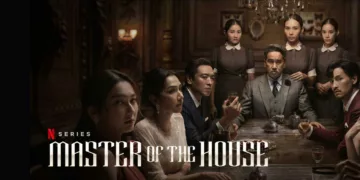








































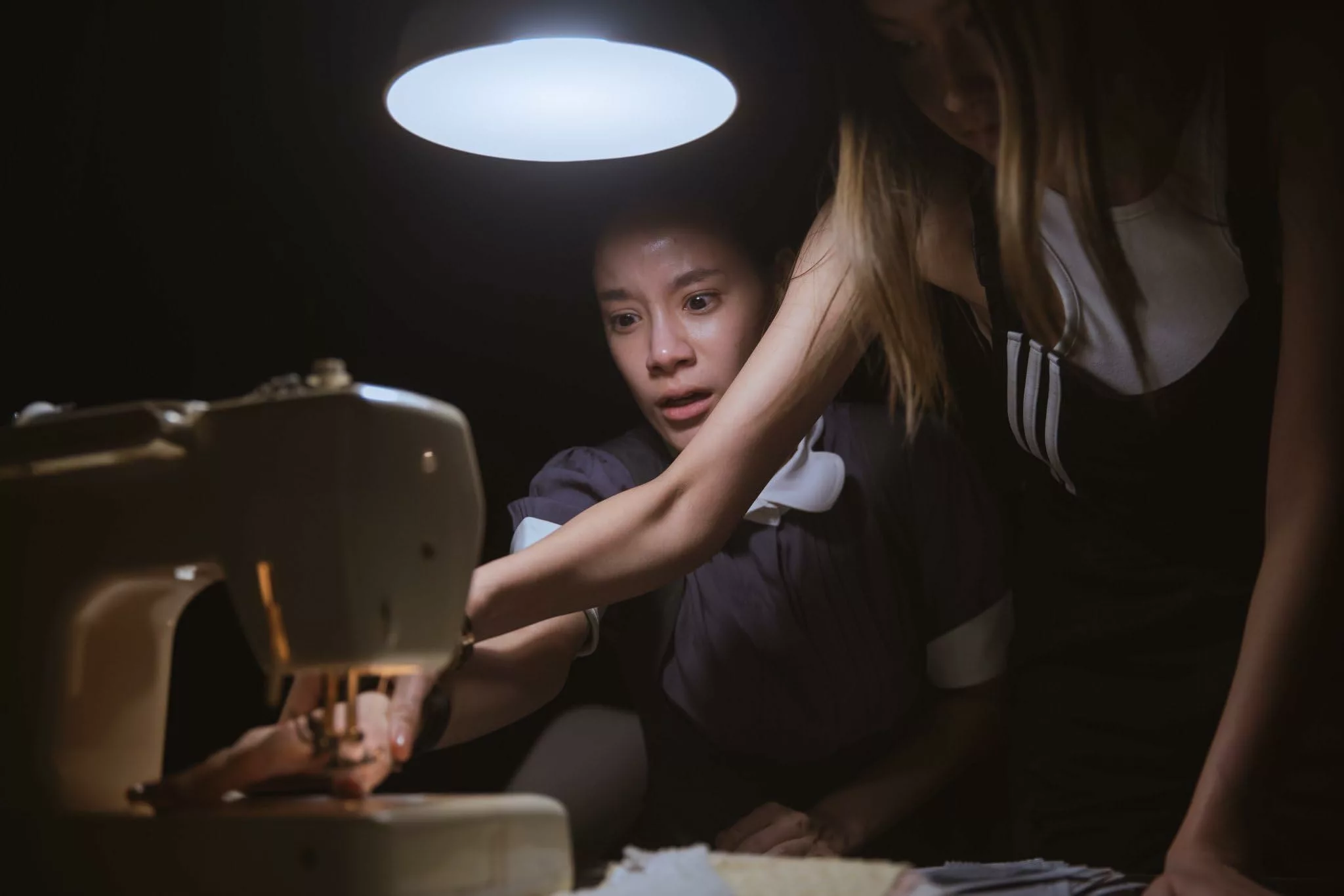
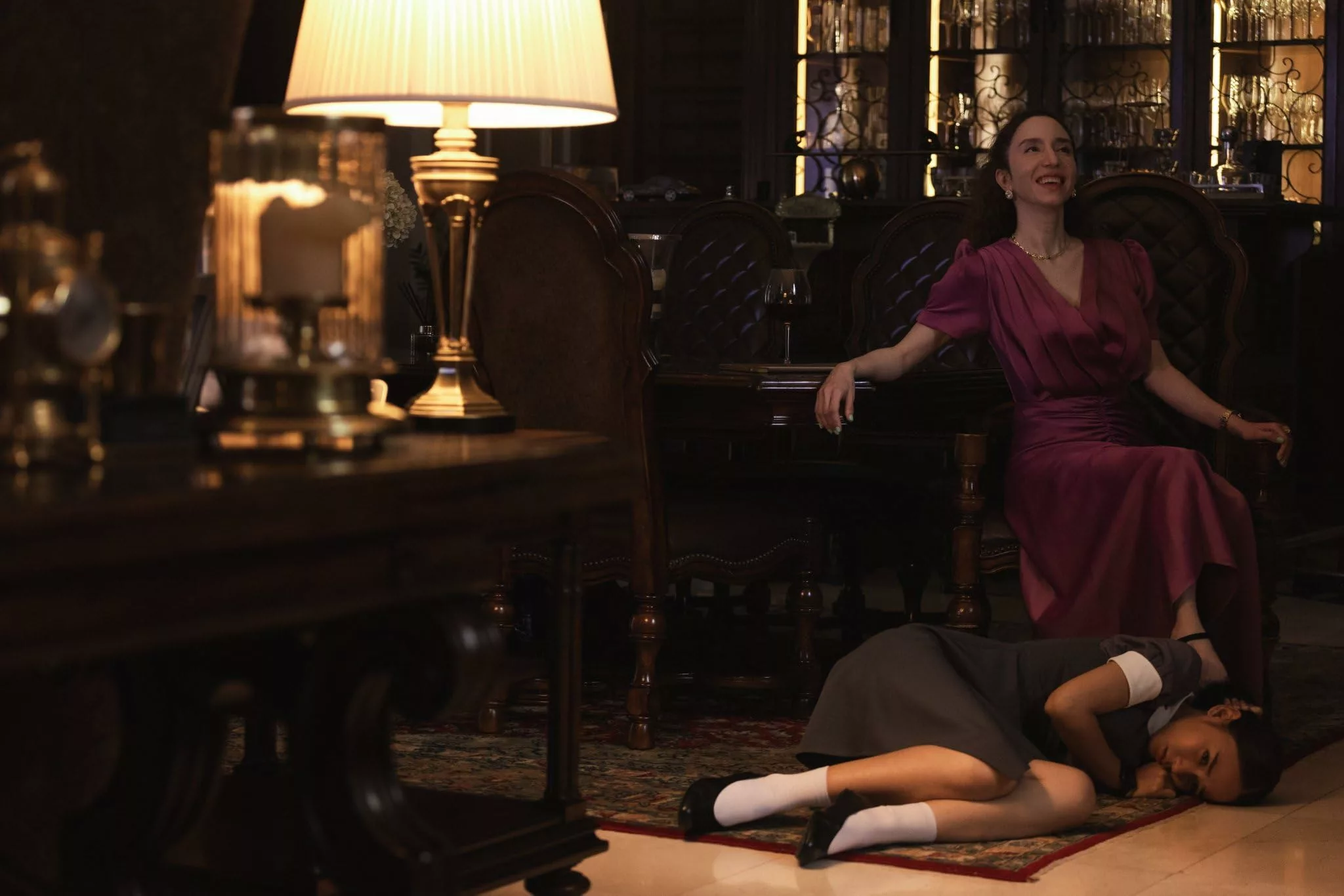

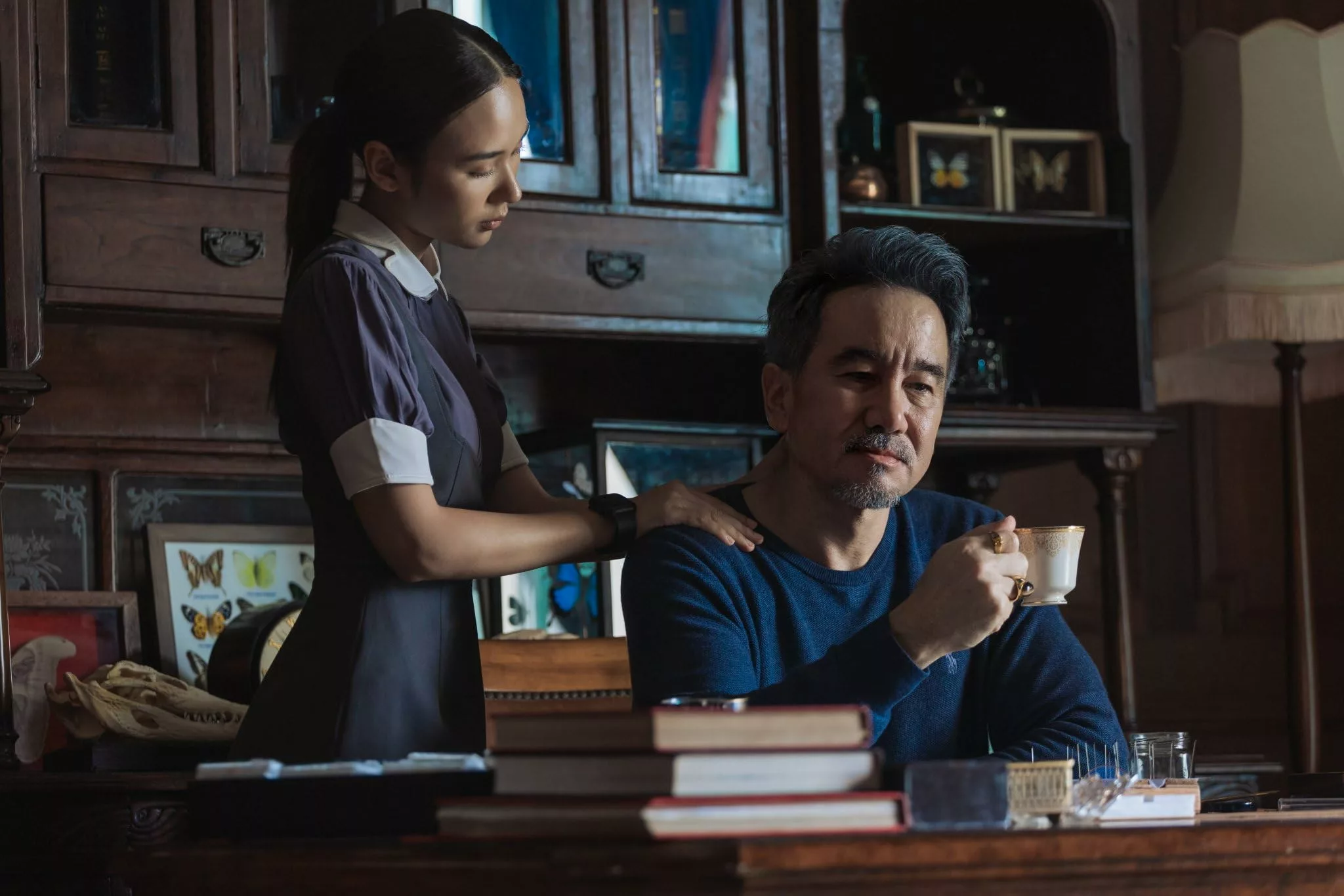
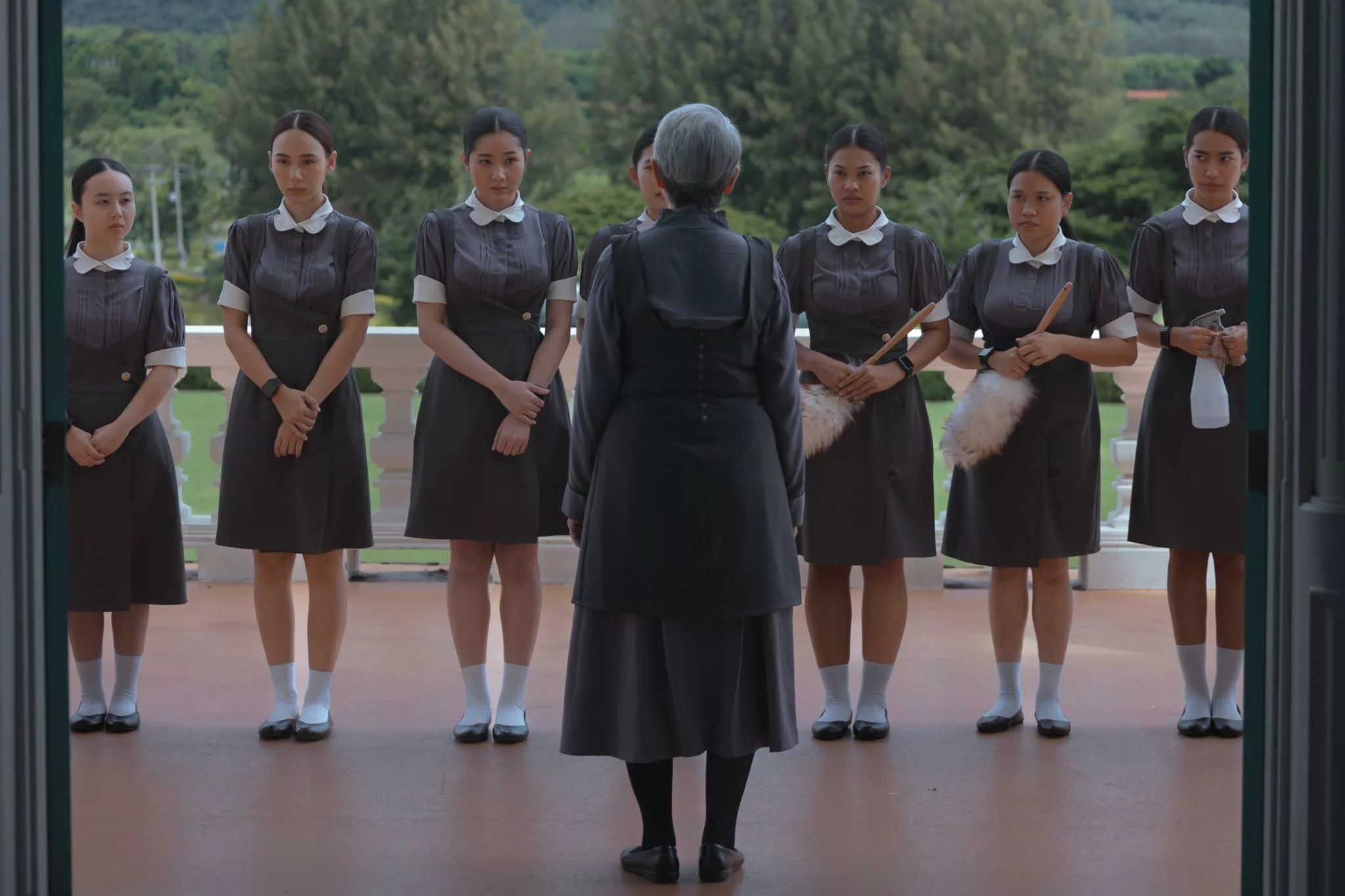








Discussion about this post